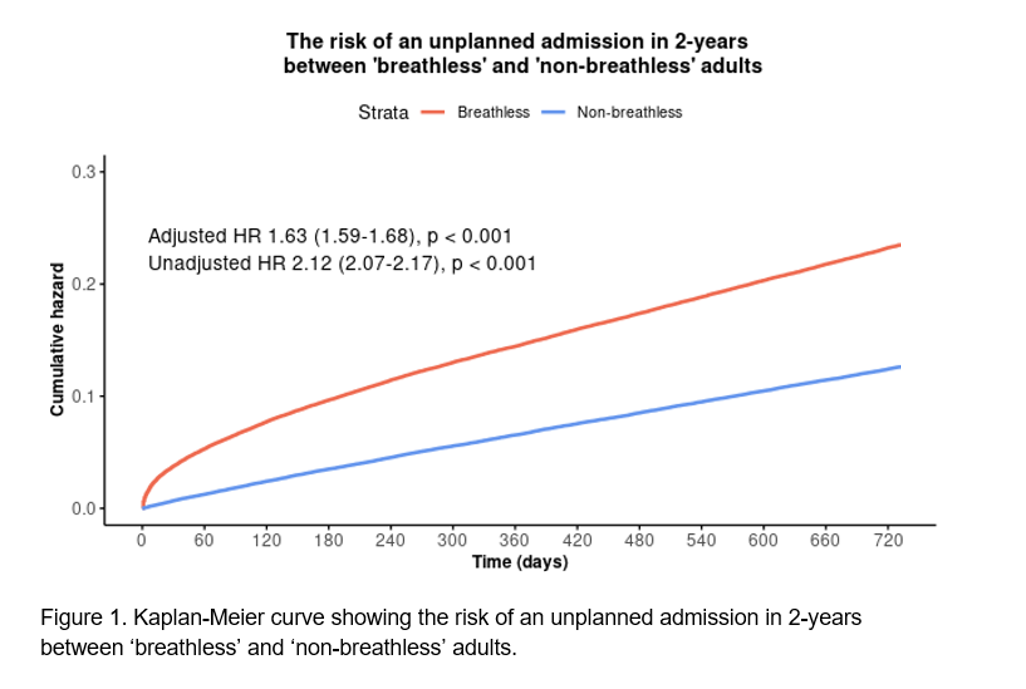Abstract
Background: The risk of adverse long-term outcomes in adults seeking healthcare for breathlessness is unknown.
Aim: To compare long-term outcomes of unplanned hospital admission and all-cause mortality rates between adults coded with breathlessness and a matched cohort without breathlessness.
Methods: Adults with a first-recorded code for breathlessness (?breathless?) between 2007 and 2017 were matched by age, gender and general practice to individuals attending on the same day but without a code of breathlessness (?not breathless?) using a UK primary care database (CPRD). Cox regression was used to report hazard ratios (HR [95%CI]) for the risk of unplanned admission and all-cause mortality 2-years from presentation adjusted for ethnicity, social deprivation, body mass index, smoking status and number of comorbidities.
Results: 85479 adults were included in each group (45% male, mean [SD] age 51[16] y). ?Breathless? adults experienced higher rates of 2-year unplanned admissions than ?non-breathless? adults (22.5% vs 11.4%), adjusted HR 1.63 (1.59-1.68) (Figure 1). All-cause mortality was low but reduced in the breathless group (0.17% vs 0.84%); adjusted HR 0.16 (0.13-0.19).
Conclusions: Opportunities to reduce future unplanned admissions for adults presenting with breathlessness need to be explored. Further investigation for the apparent better survival is required.
